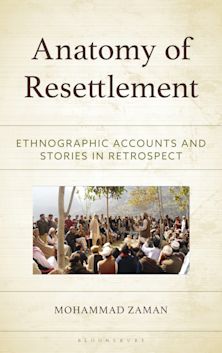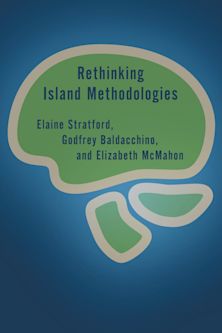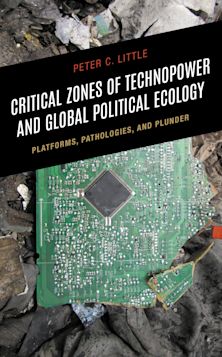- Home
- ACADEMIC
- Anthropology
- Anthropology - Other
- Development Anthropology
You must sign in to add this item to your wishlist. Please sign in or create an account
Description
In Development Anthropology: Putting Culture First, Hari Mohan Mathur highlights the role of culture—and anthropological work more broadly—in development outcomes. Anthropologists’ contributions in this area have traditionally received little attention, but this changed when the World Bank released the 2015 World Development Report. This report focused on the social, cultural, and psychological influences which affect the development process, and like Mathur, stressed the criticality of anthropological and other social sciences’ knowledge for the success of development efforts. A major contribution to development anthropology, this book will interest anthropologists, economists, sociologists, other social scientists, policy makers, planners, development practitioners, researchers and trainers, and will be particularly useful for graduate students planning their career in the field of development.
Table of Contents
Chapter 1: From Applied Anthropology to Development Anthropology
Chapter 2: Some Uses of Anthropology
Chapter 3: Anthropology and Development in India
Chapter 4: Characteristics of Traditional Societies
Chapter 5: Social and Cultural Dimensions of Development:
Chapter 6: Culture can Act as a Brake on Development
Chapter 7: Culture can Act as a Driver of Development
Chapter 8: A Socio-Culturally Appropriate Development
Chapter 9: Implementing a Socio-Culturally Sensitive Development
Chapter 10: Anthropologists in Development Organizations
Product details
| Published | May 13 2019 |
|---|---|
| Format | Ebook (PDF) |
| Edition | 1st |
| Extent | 1 |
| ISBN | 9781978751927 |
| Imprint | Lexington Books |
| Publisher | Bloomsbury Publishing |
About the contributors
Reviews
-
Mathur´s book on development anthropology is remarkable for providing an excellent overview of development dilemmas and the challenges and opportunities of fomenting change in societies for human betterment, while simultaneously grounding those insights in a sophisticated analysis of the ongoing struggle -- intellectual as well as within institutionalized bureaucracies -- between anthropologists, economists, and planners over the ways in which we understand cultural change and act upon those understandings. Mathur´s candid and constructive reflections on the strengths and weaknesses of anthropological approaches to development interventions, and how these account for many of the profession´s successes as well as its failures, will be instructive for students and young professionals who are considering a specialization as development scholars or practitioners or both.
William L. Partridge, formerly at Vanderbilt University and the World Bank
-
Development Anthropology documents how greater use of social assessment enhances development investments for local communities. It provides a panoramic chronicle of past, present, and potential future use of social factors in development planning that will be of interest to the concerned citizen as well as to the development practitioner.
Gordon Appleby, Consultant and former Senior Social Scientist, World Bank Institute
-
Development Anthropology documents how long-neglected social and cultural factors are increasingly gaining recognition in development agencies. Even the World Bank, the stronghold of economists, now appears willing to concede their role in development decision-making. It is a valuable contribution, and all those involved in the planning and implementation of development projects will find this book immensely useful.
Vinay Kumar Srivastava, Director, Anthropological Survey of India

ONLINE RESOURCES
Bloomsbury Collections
This book is available on Bloomsbury Collections where your library has access.


































